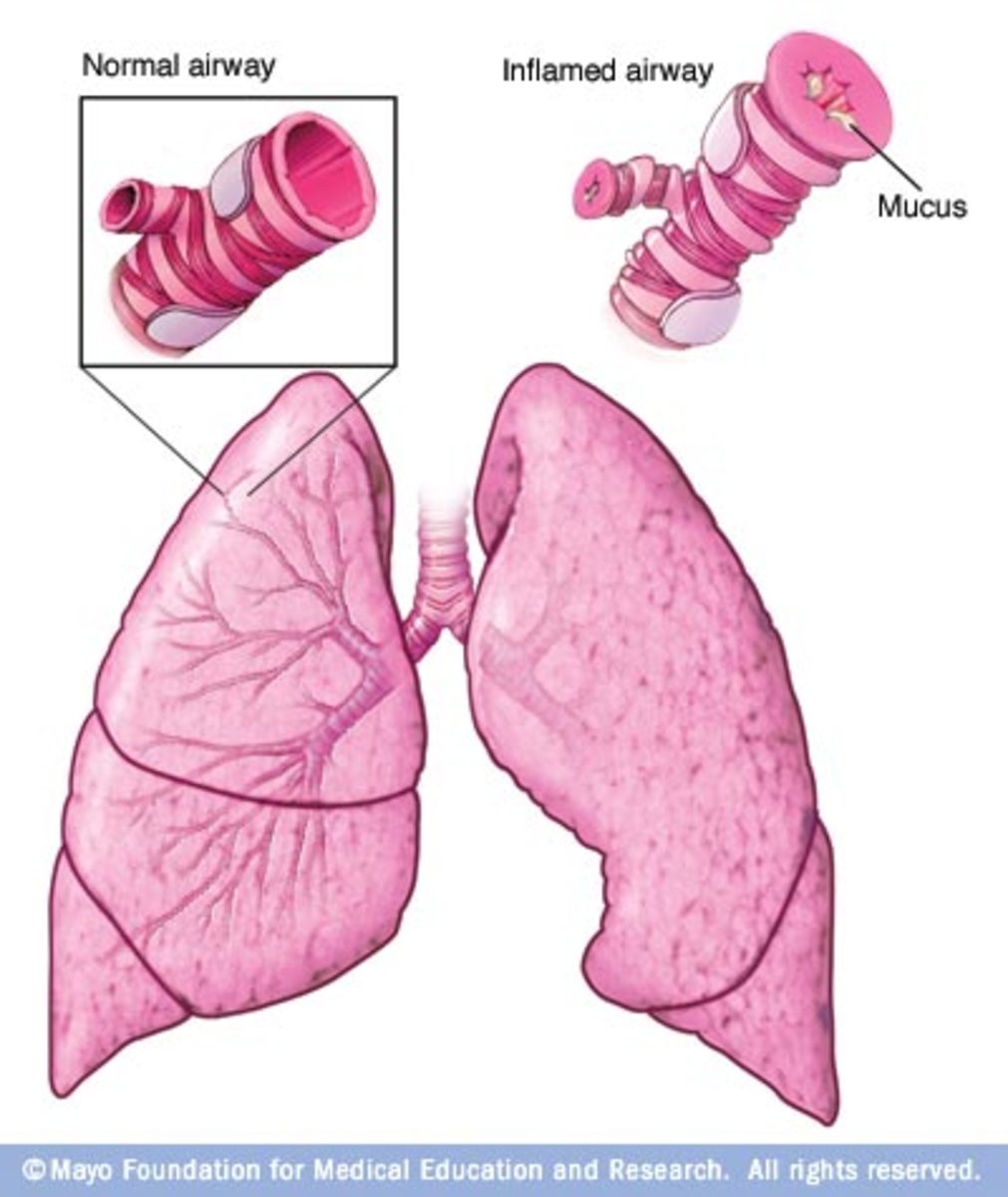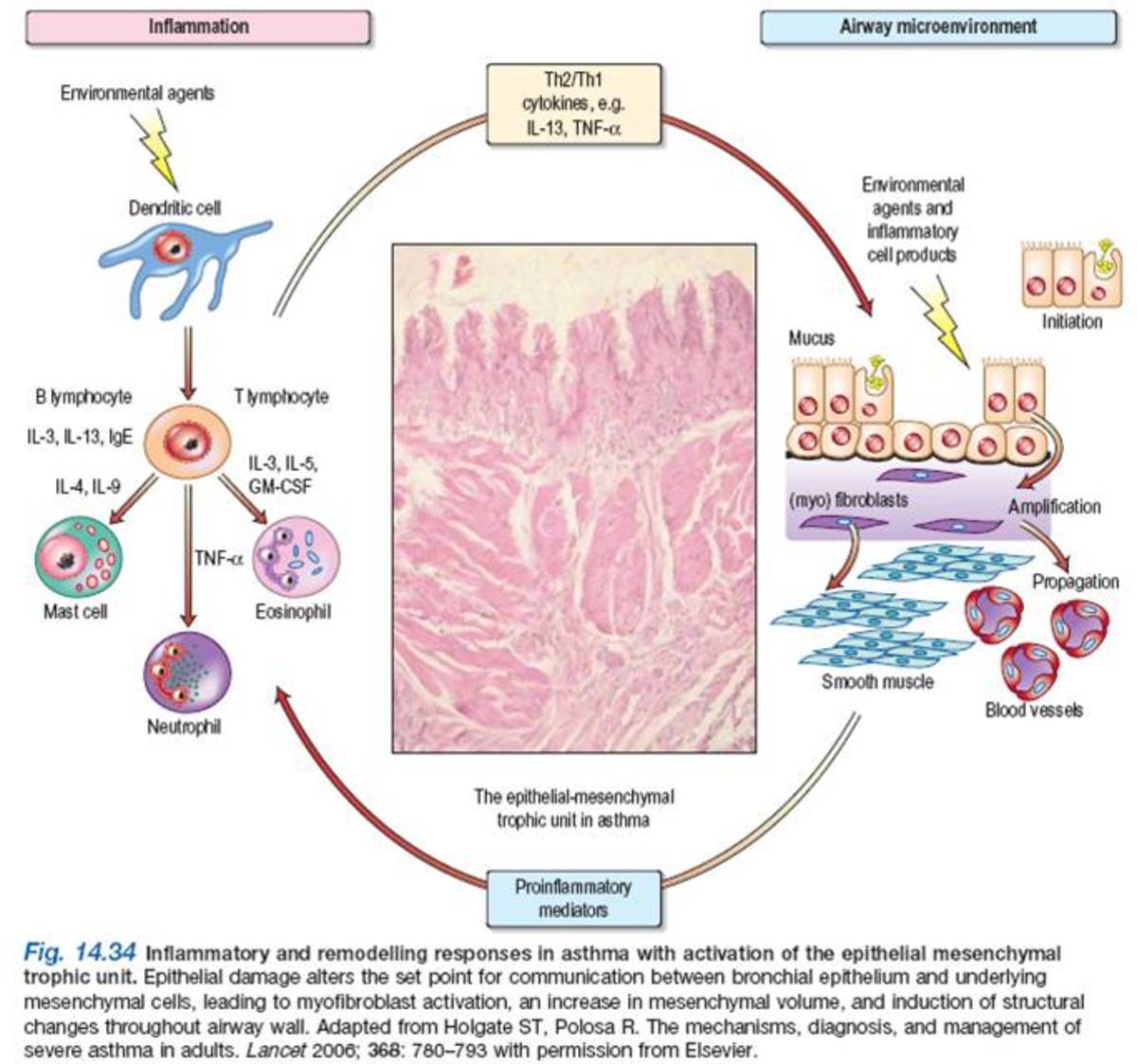What Causes Asthma?
Cases of asthma in both children and adults have been increasing worldwide for the past 20-30 years. Medical researchers do not know exactly what causes asthmas, but there has been substantial research conducted in this field that points to a number of theories. One thing is for certain: the development of asthma has to do with the immune system. Technically, asthma could be considered an autoimmune disease. It is not just asthma that is increasing in industrialized nations around the world. There are a host of other autoimmune conditions that have also been rapidly increasing.
It is known that there is a genetic relationship between people with asthma and those predisposed to allergies. This relationship is known as atopy. Atopy is best described as an allergic hypersensitivity to some type of substance or allergen. The tendency towards allergic conditions is a genetic trait, but this does not mean that everyone that develops asthma has a family history of the disease. People of all ages are now being diagnosed with asthma, even people who have lived their entire lives without ever having allergies or any asthma symptoms.

Researchers believe that the reason for this may have to do with environmental factors. We are exposed to countless things in our environment that people were not exposed to hundreds of years ago. At the same time, however, we are not exposed to some things that were much more common hundreds of years ago. This is why one of the most predominant theories in asthma and autoimmune research is the “hygiene hypothesis.” Although it has not been scientifically proven, the hygiene hypothesis is the idea that conditions like asthma and increased allergy problems may have to do with the fact that there are no less viral and infectious agents to contend with in modern societies of the industrialized world.
Today, we are vaccinated against many common viruses, and our increasingly sanitary lives eliminate many common forms of bacteria. Although there are new forms of bacteria constantly emerging, the hygiene hypothesis is centered around the idea that our bodies no longer have as much to defend against as they did in decades past. Excessive use of antibiotics may contribute to this, especially in younger people, since the immune system is prohibited from combating many of these viruses and bacteria on its own.
Doctors have since resorted to using antibiotics less often than in the past. However, the dangers posed by many viruses often outweigh the risk of not vaccinating infants. Children born to parents who have asthma are often at a substantially higher risk of developing asthma. Also, those exposed to cigarette smoke, especially at a young age, may be at a higher risk of developing asthma. Although asthma is not contagious, it is believed that exposure to certain types of viruses may contribute to the development of asthma symptoms.
- Symptoms of Asthma in Children
The symptoms of asthma in children can sometimes be hard to recognize, especially with parents who have not been around someone with asthma. Asthma symptoms can sometimes appear as a cold or... - How to Take Asthma Inhalers
More and more people are being diagnosed with asthma and related respiratory conditions than ever before. Researchers do not know why asthma is becoming so common these days, but environmental factors, as...








